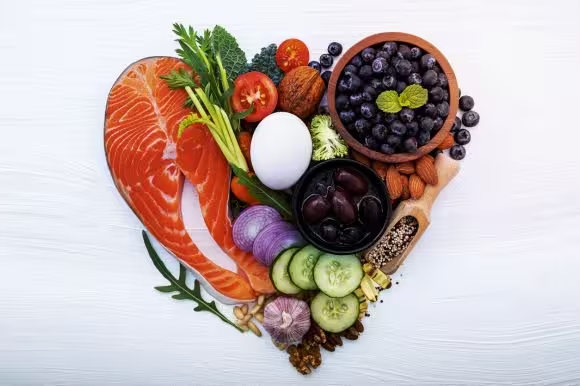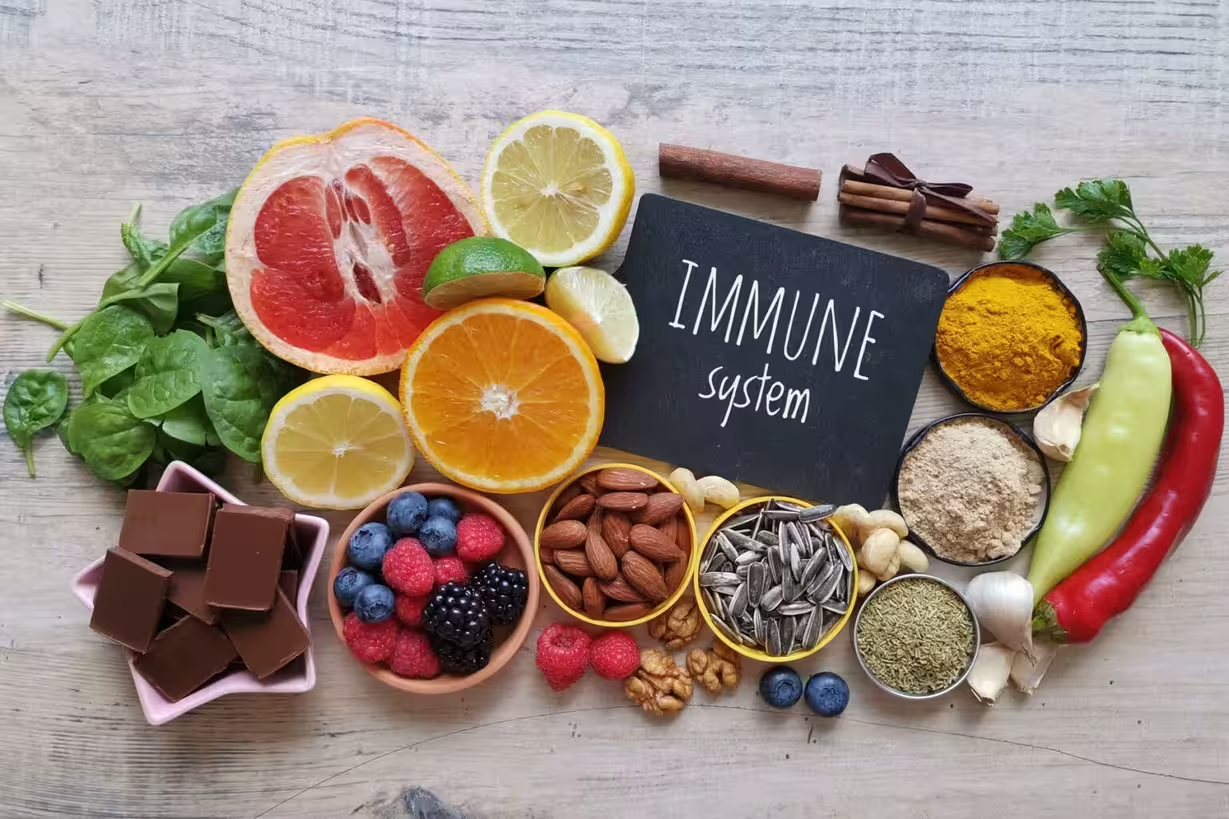Garlic, scientifically known as Allium sativum, is a common kitchen ingredient that has been used for centuries, not just to flavor food but also for its numerous health benefits. It has a strong, pungent aroma and taste that may not be loved by everyone, but its positive effects on overall health are undeniable. Garlic is often referred to as a “superfood” because of its rich nutritional profile and medicinal properties. From fighting infections to boosting heart health, this humble bulb packs a punch in both the culinary and wellness worlds. If you’re not already including garlic in your daily meals, here are compelling reasons why you should start.
What Makes Garlic So Powerful?
Before diving into the various health benefits, it’s important to understand what makes garlic so special. Garlic is rich in essential nutrients such as vitamins, minerals, and sulfur compounds that have potent biological effects. The health benefits of garlic are primarily attributed to these compounds, particularly allicin, which is produced when garlic is chopped, crushed, or chewed.
Nutrient Profile of Garlic
Although garlic is low in calories, it is packed with essential vitamins and minerals. One raw clove of garlic (about 3 grams) contains:
- Calories: 4
- Protein: 0.2g
- Carbohydrates: 1g
- Fiber: 0.1g
- Vitamin C: 1% of the Recommended Daily Intake (RDI)
- Vitamin B6: 2% of the RDI
- Manganese: 1% of the RDI
- Calcium, Iron, Potassium: Present in small amounts
This nutrient density means that even a small amount of garlic can contribute significantly to your health.
1. Garlic Is Packed with Antioxidants
The Role of Antioxidants in Your Body
Antioxidants are substances that protect your cells from oxidative stress caused by free radicals. Free radicals are unstable molecules that can damage cells and are linked to various chronic diseases, including heart disease, diabetes, and even cancer. Garlic contains a powerful blend of antioxidants that help neutralize free radicals in the body, reducing the risk of chronic illnesses.
Allicin and Its Antioxidant Power
One of the main compounds responsible for garlic’s antioxidant properties is allicin, which forms when garlic is chopped or crushed. Allicin has been shown to increase the body’s production of antioxidant enzymes, which play a crucial role in reducing oxidative damage to cells. Regular consumption of garlic can therefore help reduce inflammation and protect against the harmful effects of oxidative stress.
Garlic also contains other antioxidants, including flavonoids and sulfur compounds, which contribute to its ability to reduce inflammation and support overall health.
2. Garlic May Improve Heart Health
The Impact of Garlic on Blood Pressure
One of the most well-known benefits of garlic is its ability to promote heart health. Research has shown that garlic can help reduce high blood pressure (hypertension), a major risk factor for heart disease and stroke. The active compounds in garlic, particularly allicin, help relax blood vessels and improve blood circulation, leading to lower blood pressure.
In several clinical studies, garlic supplementation has been found to reduce blood pressure by an average of 5–8% in individuals with high blood pressure. This effect is comparable to some prescription medications for hypertension, but without the potential side effects.
Garlic’s Effect on Cholesterol Levels
Garlic also plays a role in managing cholesterol levels. High cholesterol, especially elevated levels of LDL cholesterol (bad cholesterol), is a major risk factor for cardiovascular disease. Studies have found that garlic supplementation can help lower LDL cholesterol while raising HDL cholesterol (good cholesterol).
The beneficial effects of garlic on cholesterol may be attributed to its sulfur compounds, which help reduce the buildup of plaque in the arteries and support overall cardiovascular health. This makes garlic an excellent addition to any diet aimed at preventing heart disease and maintaining a healthy heart.
Garlic and Arterial Health
In addition to lowering cholesterol and blood pressure, garlic can also promote arterial health by improving endothelial function. The endothelium is the thin layer of cells that line the blood vessels, and its proper functioning is crucial for cardiovascular health. Garlic’s ability to enhance endothelial function helps reduce the risk of atherosclerosis (hardening of the arteries) and improves overall circulation.
3. Garlic Strengthens the Immune System
Garlic’s Role in Fighting Infections
Garlic has been used as a natural remedy for various infections for centuries. It has antimicrobial properties that help the body fight off bacteria, viruses, and fungi. The active compounds in garlic, particularly allicin, have been shown to exhibit broad-spectrum antimicrobial activity, making garlic an effective tool in preventing and treating infections.
Garlic has been found to have an inhibitory effect on several pathogens, including Staphylococcus aureus, Escherichia coli, and the virus responsible for the common cold. Its ability to enhance the immune system’s response to infections makes it a great food to include during cold and flu season.
Enhancing White Blood Cell Function
Garlic stimulates the production of white blood cells, which are responsible for identifying and attacking harmful pathogens in the body. It also activates macrophages, cells that play a key role in immune response by engulfing and digesting harmful microorganisms. By boosting the immune system’s ability to fight off infections, garlic can help reduce the duration and severity of colds and other illnesses.
Garlic as an Immune Modulator
In addition to its antimicrobial properties, garlic has immune-modulating effects, meaning it helps regulate the immune system. It can help strengthen the immune response when needed, but it also prevents overactivation, which could lead to autoimmune disorders. This makes garlic an effective food for promoting a balanced and healthy immune system.
4. Garlic Promotes Digestive Health
The Prebiotic Effect of Garlic
Garlic not only enhances the flavor of food but also promotes digestive health through its prebiotic properties. Prebiotics are non-digestible fibers that serve as food for beneficial gut bacteria, supporting the growth and activity of probiotics. A healthy balance of gut bacteria is essential for optimal digestion, nutrient absorption, and immune function.
The prebiotic compounds in garlic help nourish beneficial bacteria in the gut, particularly Bifidobacteria and Lactobacilli. By promoting the growth of these beneficial microbes, garlic supports a healthy microbiome and improves overall digestive health.
Garlic for Reducing Digestive Issues
Garlic can also help alleviate digestive problems such as bloating, indigestion, and gas. The compounds in garlic stimulate the production of digestive enzymes, which help break down food more efficiently and reduce digestive discomfort. Additionally, garlic has been shown to have anti-inflammatory properties that can soothe the digestive tract and reduce symptoms of conditions like irritable bowel syndrome (IBS).
Garlic for Gut Health and Weight Management
Emerging research suggests that garlic may also play a role in managing weight by improving gut health. A healthy gut microbiome is essential for proper metabolism, and imbalances in gut bacteria have been linked to weight gain and obesity. By supporting the growth of beneficial bacteria, garlic may help regulate metabolism and contribute to healthy weight management.
5. Garlic Can Help Detoxify the Body
Garlic’s Detoxifying Effects on the Liver
Garlic is known for its detoxifying properties, particularly its ability to support the liver. The liver is responsible for filtering toxins from the blood and processing harmful substances that the body absorbs. Garlic contains sulfur compounds, such as allyl sulfides, that stimulate the production of liver enzymes responsible for detoxification.
Research has shown that garlic can enhance the liver’s ability to eliminate toxins, particularly heavy metals like lead and mercury. This detoxifying effect can help prevent the buildup of toxins in the body, support liver health, and promote overall well-being.
Garlic and Heavy Metal Detoxification
One study found that garlic supplementation significantly reduced the levels of lead in the blood of workers exposed to the metal. Garlic’s ability to bind to heavy metals and help the body excrete them makes it a natural and effective detoxifier.
6. Garlic May Help Combat Cancer
Garlic’s Anti-Cancer Properties
Emerging research suggests that garlic may play a role in reducing the risk of certain types of cancer. The sulfur compounds in garlic, particularly diallyl sulfide and allyl mercaptan, have been shown to inhibit the growth of cancer cells and slow down tumor development. Studies have found that garlic may reduce the risk of cancers such as stomach, colorectal, and prostate cancer.
Garlic’s Role in DNA Protection
Garlic has been shown to help protect DNA from damage caused by carcinogens (cancer-causing substances). This protective effect is thought to be due to garlic’s antioxidant and anti-inflammatory properties, which help reduce oxidative stress and inflammation, both of which are linked to cancer development.
Conclusion: Why You Should Make Garlic a Staple in Your Diet
Garlic is much more than just a flavorful ingredient for your cooking. With its wealth of health benefits—ranging from its antioxidant and heart-healthy properties to its immune-boosting and detoxifying effects—garlic deserves a spot in every diet. Whether you’re looking to reduce the risk of chronic diseases, improve digestive health, or strengthen your immune system, garlic can be a simple yet powerful addition to your daily routine.
To reap the most benefits, aim to incorporate fresh garlic into your meals. You can add it to soups, stews, stir-fries, salads, or even smoothies. However, it’s important to note that crushing or chopping garlic before consuming it helps activate its beneficial compounds, particularly allicin.
So, the next time you’re planning a meal, don’t forget to grab a clove of garlic. It’s a small change that could have a big impact on your health.




